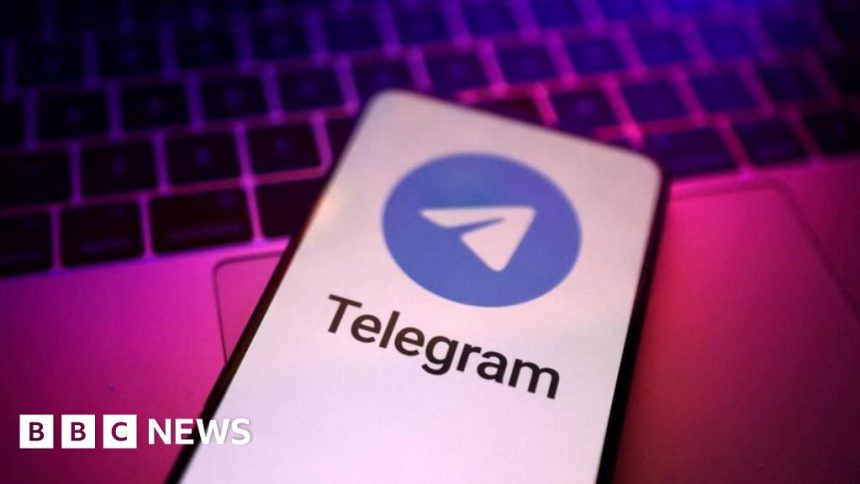Telegram apologises for handling of deepfake porn material
 Reuters
ReutersTelegram has apologised to South Korean authorities for its handling of deepfake pornographic material shared via its messaging app, amid a digital sex crime epidemic in the country.
It comes days after South Korean police said they had launched an investigation into Telegram, accusing it of “abetting” the distribution of such images.
In recent weeks, a large number of Telegram chatrooms – many of them run by teenagers – were found to have been creating sexually explicit “deepfakes” using doctored photographs of young women.
Authorities say Telegram has since removed such videos from its platform.
In a statement to South Korea’s Communications Standards Commission (KCSC), Telegram said the situation was “unfortunate”, adding that it “apologised if there had been an element of misunderstanding”.
It also confirmed that it had taken down 25 such videos as requested by KCSC.
In its latest statement to KCSC, Telegram also proposed an email address dedicated to future communication with the regulator.
KCSC described the company’s approach as “very forward-looking” and said Telegram has “acknowledged the seriousness” of the situation.
Deepfakes are generated using artificial intelligence, and often combine the face of a real person with a fake body.
The recent deepfake crisis has been met with outrage in South Korea, after journalists discovered police were investigating deepfake porn rings at two of the country’s major universities.
It later emerged that police received 118 reports of such videos in the last five days. Seven suspects, six of whom are teenagers, have been questioned by the police in the past week.
The chat groups were linked to individual schools and universities across the country. Many of their victims were students and teachers known to the perpetrators.
In South Korea, those found guilty of creating sexually explicit deepfakes can be jailed for up to five years and fined up to 50 million won ($37,500; £28,300).
These discoveries in South Korea follow the arrest of the Russian-born founder of Telegram, Pavel Durov, in France, on allegations that child pornography, drug trafficking and fraud were taking place on the messaging app.
Mr Durov has since been charged.
Last Tuesday, South Korean President Yoon Suk Yeol had instructed authorities to “thoroughly investigate and address these digital sex crimes to eradicate them”.
Women’s rights activists have accused South Korean authorities of allowing sexual abuse to take place on Telegram.
In 2019, it was discovered that a sex ring had used the app to blackmail dozens of women and children to film pornographic content. The ring leader Cho Ju-bin, who was then 20, was sentenced to 42 years in jail.







